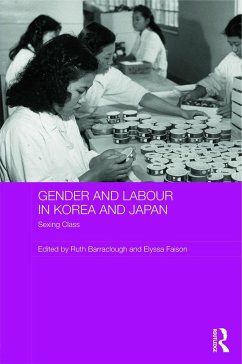Bringing together for the first time sexual and industrial labour as the means to understand gender, work and class in modern Japan and Korea, this book shows that a key feature of the industrialisation of these countries was the associated development of a modern sex labour industry. Tying industrial and sexual labour together, the book opens up a range of key questions: In what economy do we place the labour of the former "comfort women"? Why have sex workers not been part of the labour movements of Korea and Japan? Why is it difficult to be "working-class" and "feminine"? What sort of labour hierarchies operate in hostess clubs? How do financial crises translate into gender crises? This book explores how sexuality is inscribed in working-class identities and traces the ways in which sexual and labour relations have shaped the cultures of contemporary Japan and Korea. It addresses important historical episodes such as the Japanese colonial industrialisation of Korea, wartime labour mobilisation, women engaged in forced sex work for the Japanese army throughout the Asian continent, and issues of ethnicity and sex in the contemporary workplace. The case studies provide specific examples of the way gender and work have operated across a variety of contexts, including Korean shipyard unions, Japanese hostess clubs, and the autobiographical literature of Korean factory girls. Overall, this book provides a compelling account of the entanglement of sexual and industrial labour throughout the twentieth century, and shows clearly how ideas about gender have contributed in fundamental ways to conceptions of class and worker identities.
Hinweis: Dieser Artikel kann nur an eine deutsche Lieferadresse ausgeliefert werden.
Hinweis: Dieser Artikel kann nur an eine deutsche Lieferadresse ausgeliefert werden.








